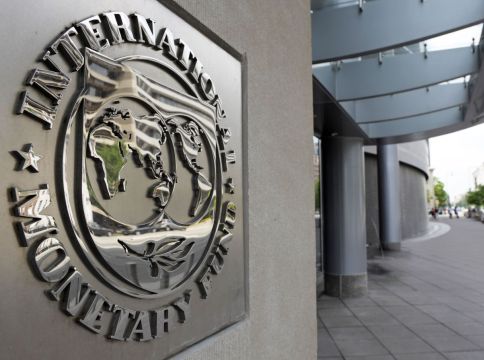IMF suggests Uzbekistan to raise energy prices

By Kamila Aliyeva
The mission of the International Monetary Fund (IMF) was on an official visit to Uzbekistan on July 17-26, as a result of which the fund published its final statement on the current situation in the economy of the country and proposals for its improvement.
“External trade has picked up significantly, but cyclical tailwinds from rising commodity export prices and external demand are projected to abate,” the IMF statement said.
The fund’s experts noted that responding to foreign exchange and trade liberalization, as well as to the opening of Uzbekistan’s borders, both export and import growth in the first half of 2018 was significantly faster than expected.
The past upward trend in prices of key export commodities (gold, natural gas, cotton) is projected to level off in 2019, according to the IMF.
“Consumer price index (CPI) inflation has been declining, but sustained macroeconomic policy discipline is needed to ensure that underlying inflation will trend downward,” the report said.
CPI inflation in January-June 2018 slowed by 1 percentage point to 6.25 percent, while year-on-year CPI inflation gradually declined from its peak of 20.5 percent in January of this year to 18.5 percent in June.
In the forecast period, the main drivers of inflation will likely be much-needed relative price and wage adjustments.
In particular regulated prices (tariffs), for example natural gas, will need to be brought closer to cost-recovery levels, prices for tradable goods that are domestically consumed, for example fruit and vegetables, will need to adjust closer to the export prices of these goods, and the relative wage structure, especially in the public sector, will need to better reflect workers’ actual or required skill differentials.
“We continue to project CPI inflation to decline, and it will likely settle in the range of 12-14 percent by end-2019. The more important point is that the first- and second-round effects of relative price and wage adjustments on inflation will not be allowed to spill over into permanently higher inflation rates. Achieving this will require maintaining disciplined fiscal, credit, and monetary policies,” the IMF experts noted.
They pointed out that key structural reforms, such as reforming taxes, restructuring SOEs, reducing bureaucratic red tape, and containing monopolistic pricing practices remain to be fully implemented.
However, the fund considers that growth and job creation are likely to react with delay to transition reforms.
Turning to one of the challenges that are before state-owned enterprises (SOEs), the IMF experts noted that the government needs to bring tariffs and energy prices closer to cost-recovery levels.
They point out that due to the current situation, state-owned enterprises (SOEs) providing utilities and producing energy are suffering large losses in the face of rising input cost pressures, with losses compounded by these firms’ long-standing operational inefficiencies.
At the same time, the regulated prices for utilities and energy distort the scarcity signal function of relative prices, particularly so for energy, the statement said.
The increase in energy prices, according to the IMF, will solve this problem.
“Energy prices for households have already increased significantly since last year, but those increases mainly compensated firms for higher import costs. More accurate cost data is needed to reliably benchmark the gap between tariffs and cost-recovery prices. These and other uncertainties argue for increasing tariffs gradually,” the IMF said in a statement.
It is estimated that such gradual tariff increases would likely add about 4 percentage points to cumulative CPI inflation during 2018-2019, assuming the impact is contained to first- and second-round effects on inflation. The government also will need to counteract the adverse consequences from tariff increases for low-income households, including by increasing targeted social benefits.
---
Kamila Aliyeva is AzerNews’ staff journalist, follow her on Twitter: @Kami_Aliyeva
Follow us on Twitter @AzerNewsAz
